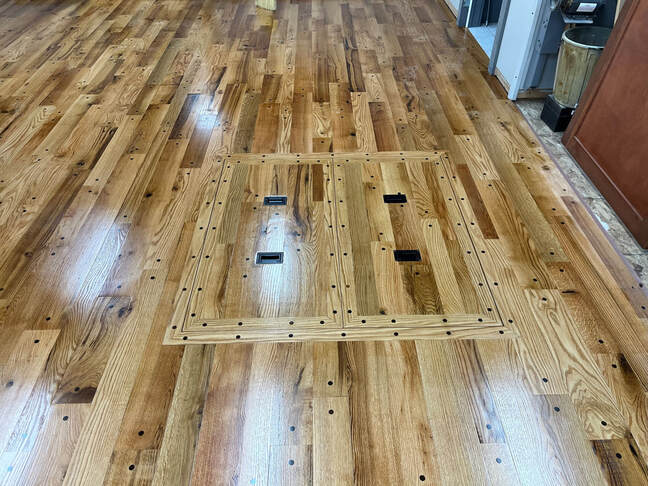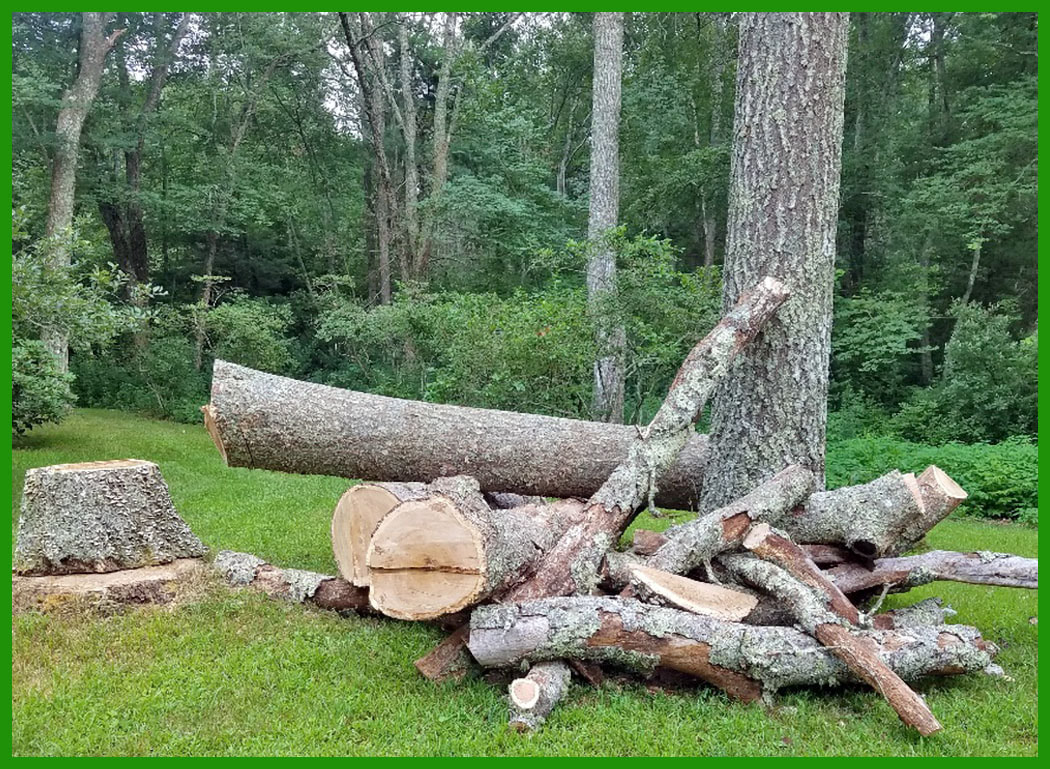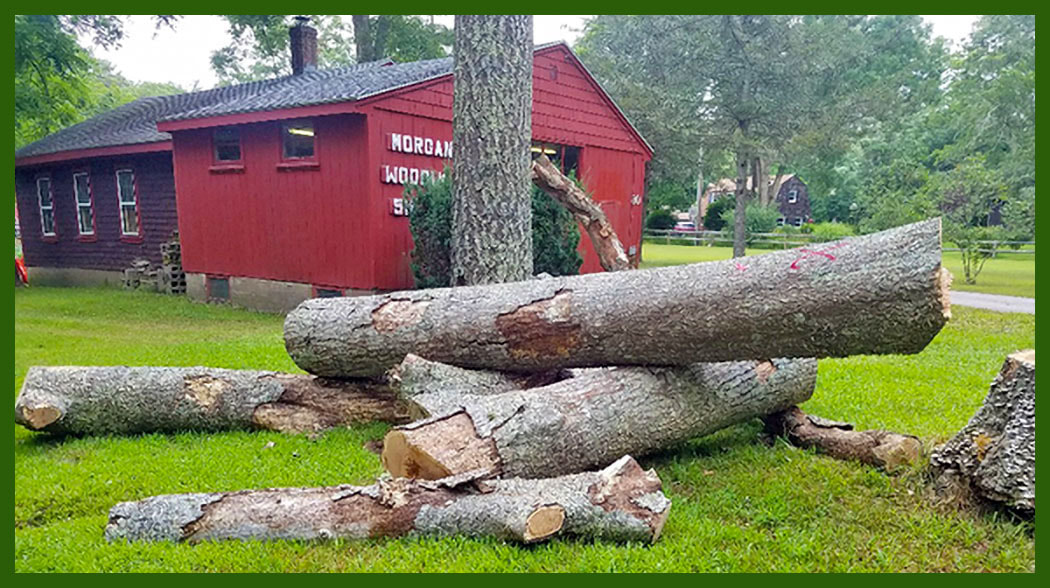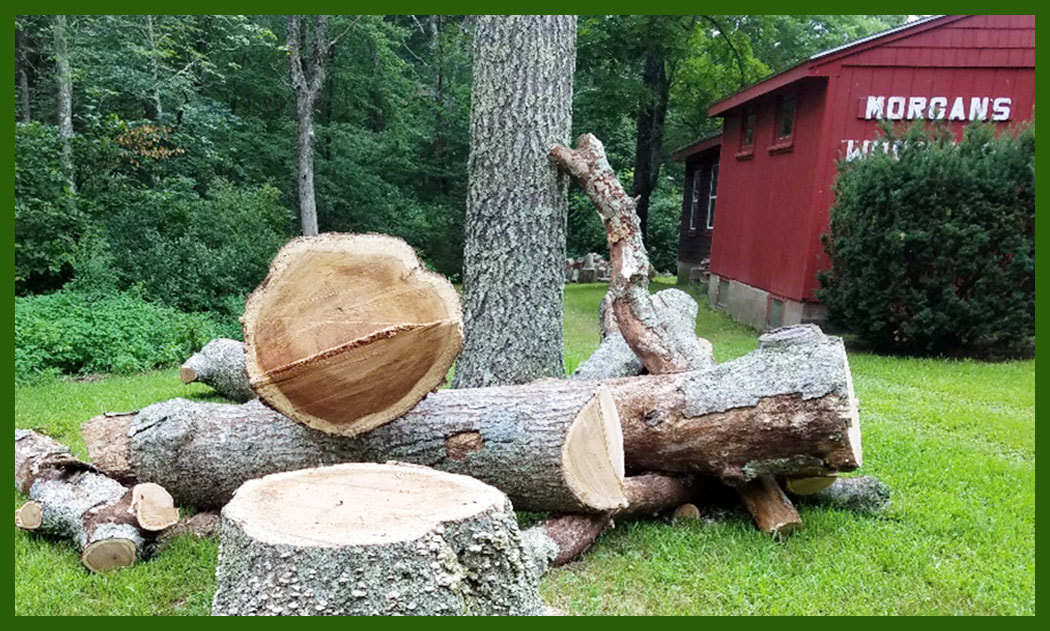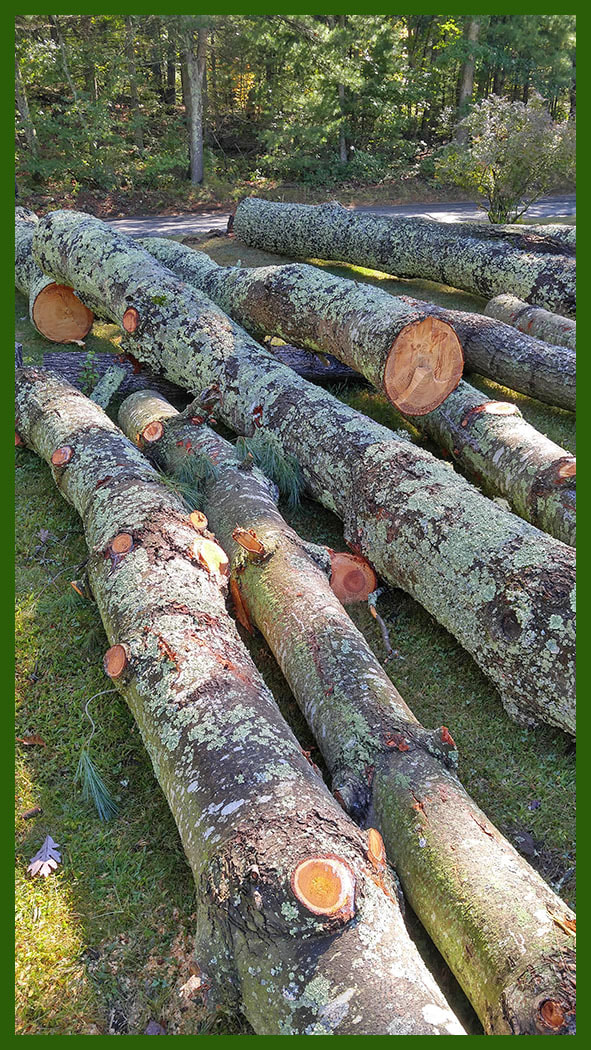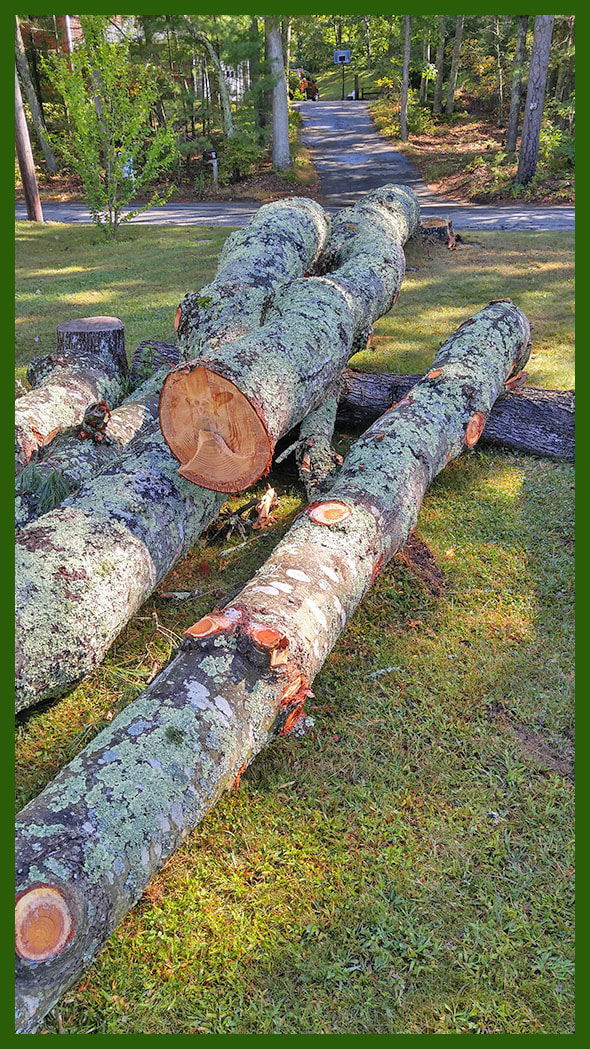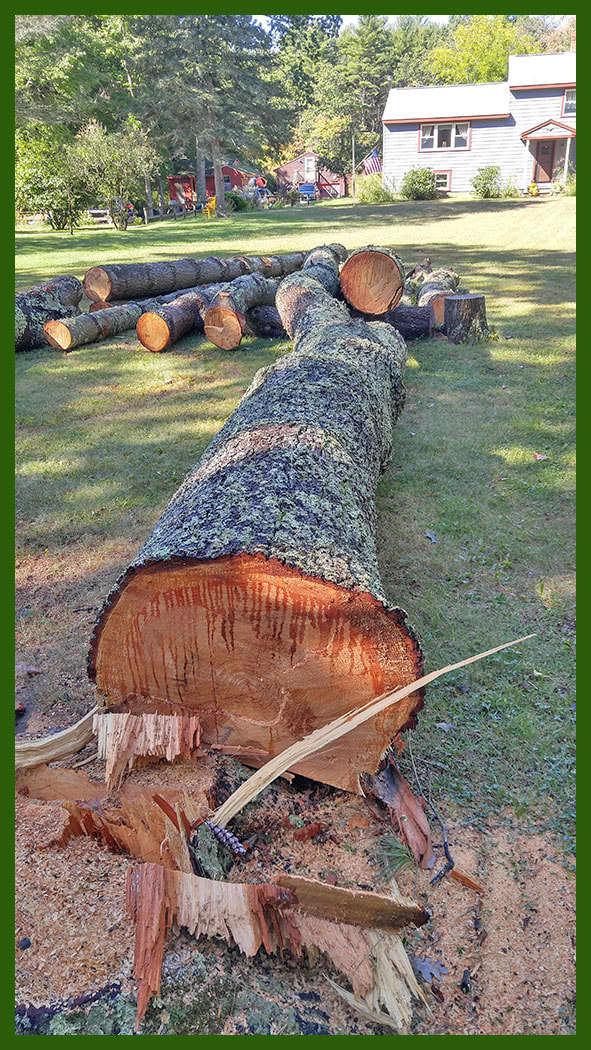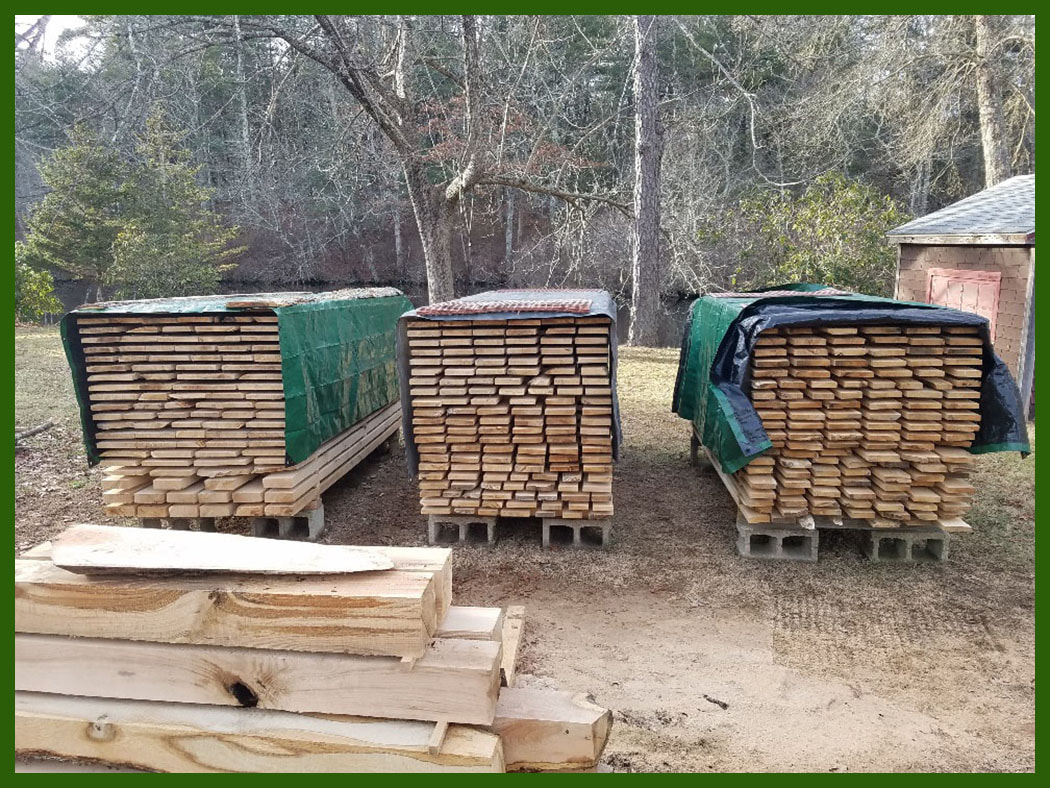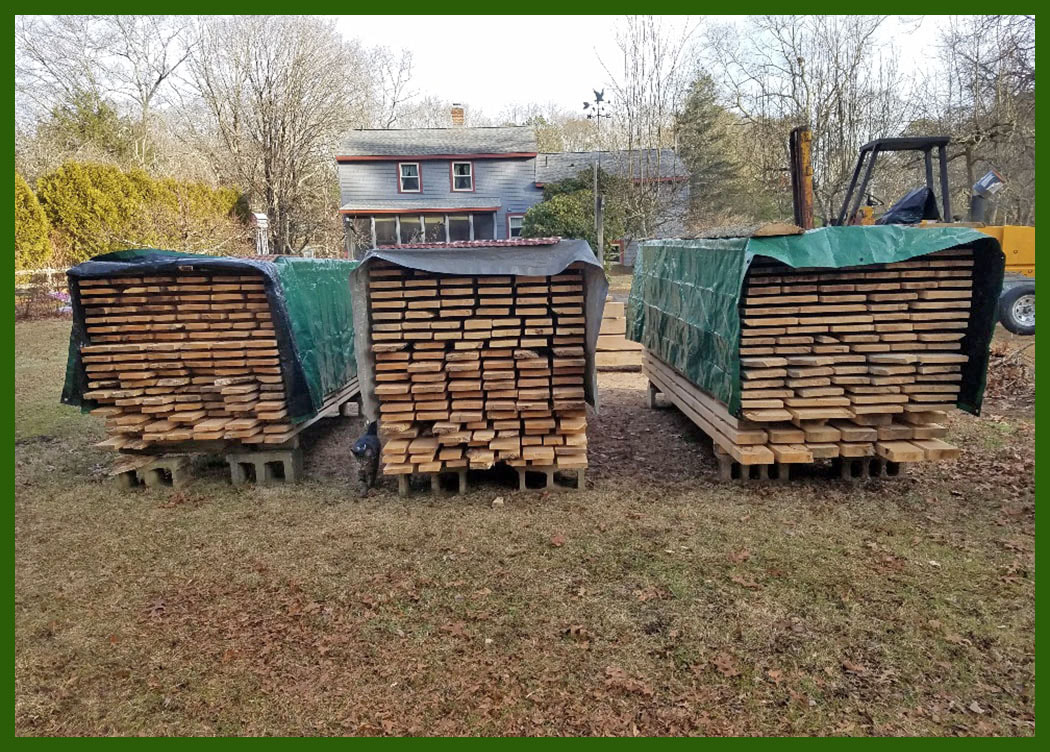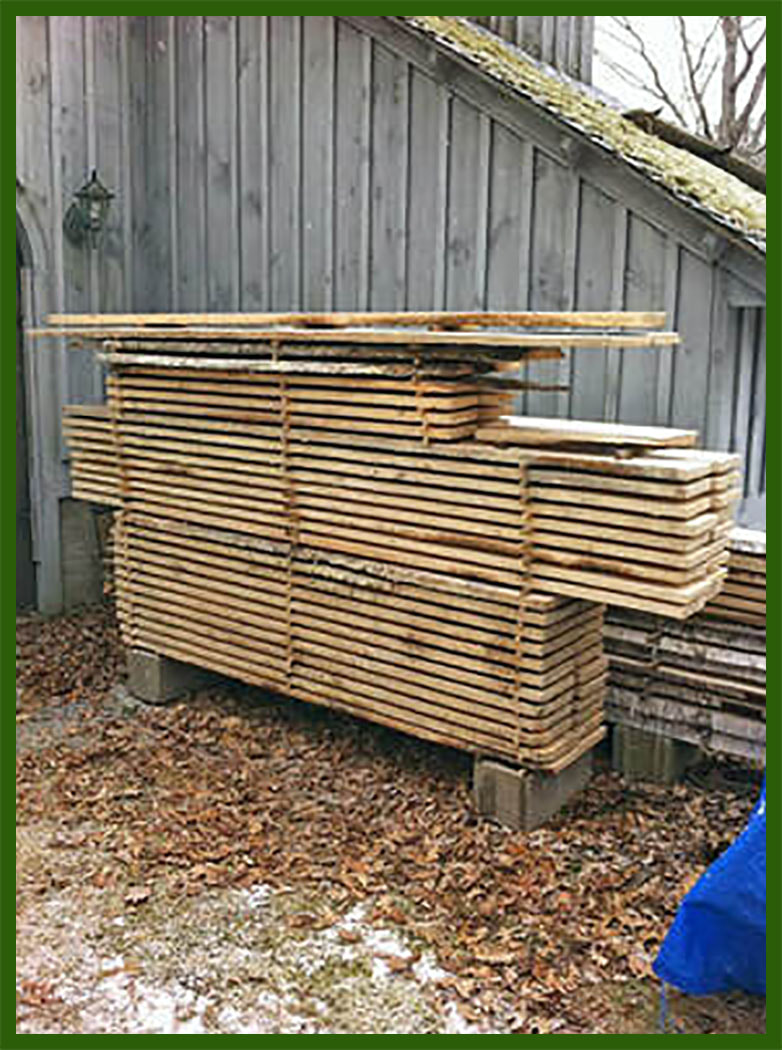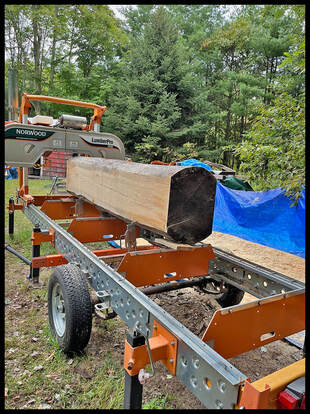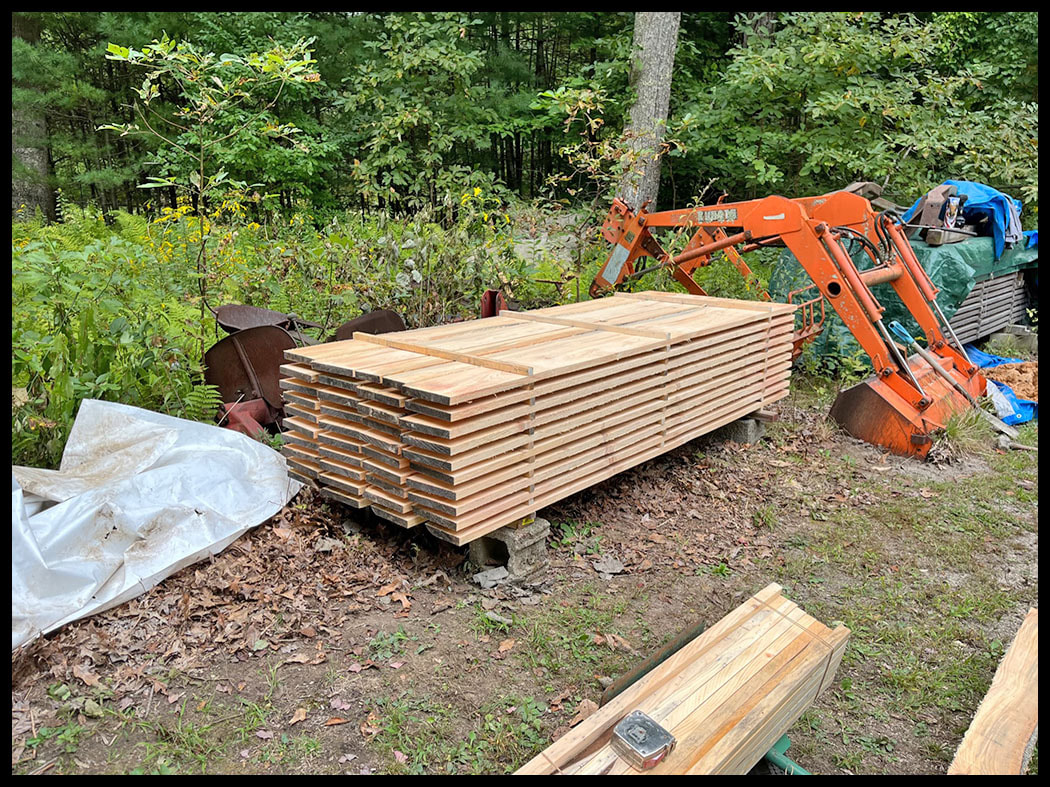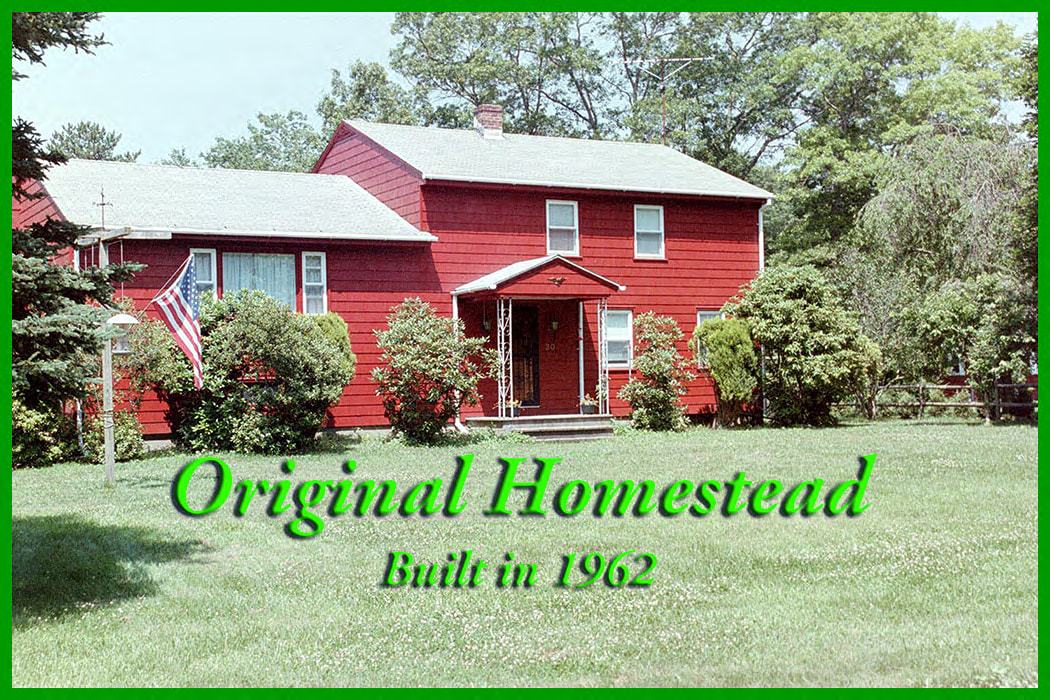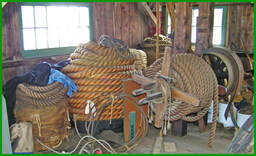The photos shown below capture part of the removal of a number of trees on the periphery of our property. They have been destroyed by Gypsy Moths and another attacker we haven't been able to identify as yet. There are some diseases attacking our forests now that weren't much of a problem in years past. You can see the damaged bark as a result of the result of the dying process. As part of the on-going workshop refurbishment process, my brother Roland is the Sawyer cutting all of our damaged on-site logs. The larger logs will cut into planks to use as new flooring in the workshop as we progress through refurbishment project. The YouTube video below is just one example.
Most sawyers won't accept logs which come from past homesteads because of the potential that over time, a bracket, screw, nail, barbed wire, or spike was attached to the tree at sometime in the past and the tree grew over it. In New England it is fairly common to find older trees full of surprises of such nature. Bullets are rather common everywhere and if it is all lead won't ruin the saw, but can dull it. One way to keep a sharp bandsaw blade is to power wash the bark off the tree, which may expose inclusions in the log and in doing so find out whether you can use it or cut it in ways to avoid an area that looks suspicious. There are some interesting videos on YouTube relating to power washing.
Recommendations for our interested viewers, by Roger
Recently I came across a fascinating YouTube channel that provides historic information about New England Forests and the history of the importance of the White Pine Tree to the settlers of the new world. I'm including a link to it here...
New England Forests 0 v
You can click on the link and peruse the selection for some wonderful historic information about our New England forests and beyond. If you are a woodworker and appreciate knowing more about the history of New England forests and its beginnings this is a channel worth watching.
New England Forests 0 v
You can click on the link and peruse the selection for some wonderful historic information about our New England forests and beyond. If you are a woodworker and appreciate knowing more about the history of New England forests and its beginnings this is a channel worth watching.
"Quite by coincidence I ran across a book written by Henry David Thoreau, titled The Maine Woods which I am slowly reading and greatly appreciating. Thoreau was quite the insightful observer and reading about is adventures into the Main wilderness is rather fascinating. This work was published in 1864 and republished again in 1997." R.A. Morgan
